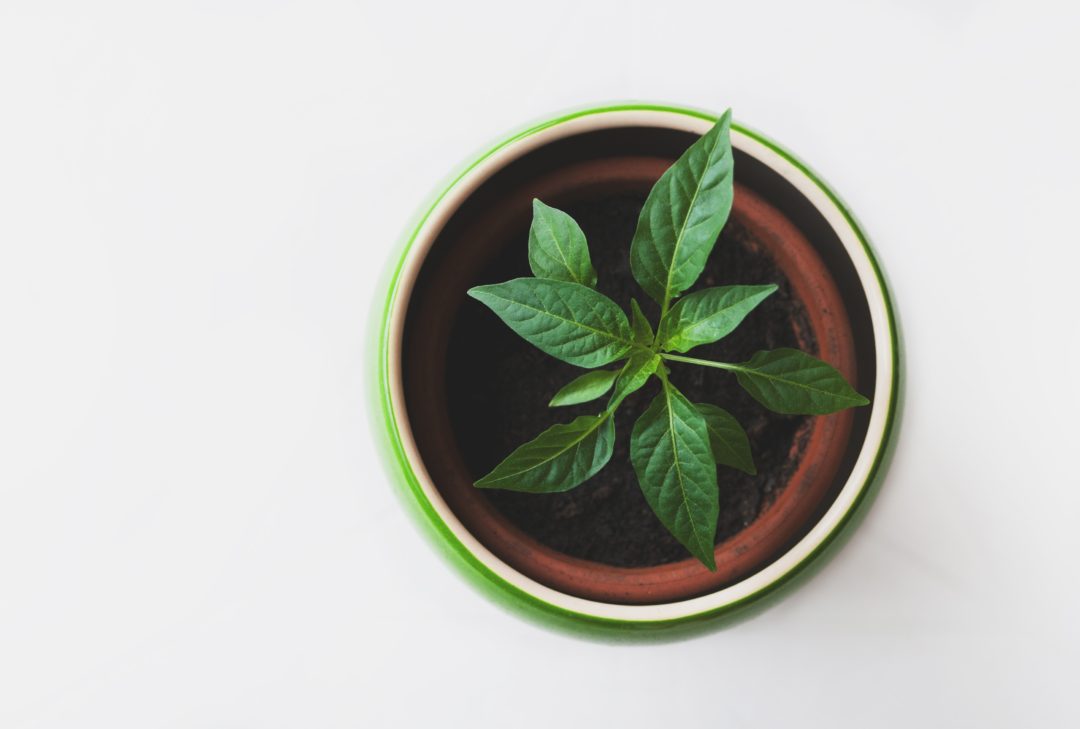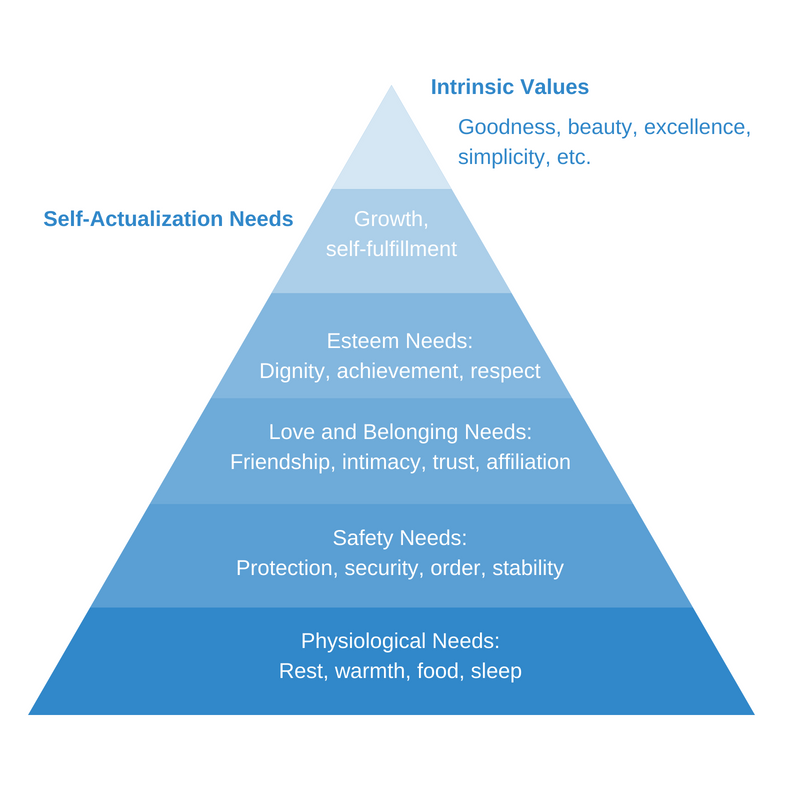Over the past couple of weeks, Mike and I have been doing a lot of thinking about what we need. By that, I mean what we need to feel happy, healthy, and settled. More than anything, what we want right now is just to feel like everything is okay. (Or, as okay as it can be.)
On the surface, figuring out what you need seems easy enough. When you stop and think about it, though, that issue becomes more complex. For instance: how many people have you known who seemed to believe that their need for some thing–a new car, a new house, whatever–was the source of their unhappiness? People who really, truly believed that once they had that new thing, they’d be happy?
And how many of those people still weren’t happy when they got what they wanted?
This is not an uncommon situation, but it stems from a very common (and complex) problem: misunderstanding our human needs. Psychologist Abraham Maslow suggested that the hierarchy of our human needs* looks something like this:
At the base are those fundamental things all human beings require to stay alive. As we work upward, we move into the things we need to be happy and functional–connections with other people, a sense of personal dignity, etc. At the top of Maslow’s original hierarchy was self-actualization. That need can most easily be described as the desire to “do more.” (You know that feeling when you’re stuck in a rut and anxious to do something different? That’s how I understand the need for self-actualization.)
It’s important to note that Maslow did not suggest that these needs are exactly the same for all people. Some of us need lots of friendships and personal connections to feel okay; others of us require just a few close friendships to satisfy our need to belong. My need for affiliation (being part of a group), for instance, is very small. But my need for security and stability is huge.
Similarly, it’s important to understand that Maslow wasn’t suggesting that our needs have to be met from the bottom up. It’s entirely possible for us to sacrifice sleep or food (for a while, anyway) in order to focus on our need for achievement. So while these needs are presented as a hierarchy that builds on itself, that’s true only in the most basic sense: we do have to eat and sleep, eventually, if we’re going to continue functioning at other levels.
Where I want to focus your attention, though, is at the top of the pyramid–those Intrinsic Values. This is a part of Maslow’s hierarchy that gets precious little attention, though I think it’s the most important piece. From my perspective, those values are what give meaning to everything else.
Maslow identified these as metaneeds, both to distinguish them from our physical needs and to indicate that they move beyond our physical being. My need to see beauty in the world, for instance–to marvel at a tree covered in sparkling frost, or a field of wildflowers by the roadside–relates to the health of my soul, not the functioning of my heart. For some of us, the physical beauty of our homes might be tied to our need for esteem. For others, it might be tied to our need for stability.
The more I’ve thought about the idea of intrinsic values, the easier it has been to determine what I really need. Simplicity might be at the top of that list. Mike and I do a pretty good job of keeping our home clutter-free (or, at least, taking a stab at decluttering on a regular basis.) But for me, simplicity also means watching plants grow with the help of just a little water, soil, and sun. I take enormous pleasure in keeping a small garden in our back yard. My garden isn’t there for the sake of keeping my family fed and pesticide-free; it’s there because it fulfills my need to remember that simple things, like plants, still exist in this world.
Knowledge is another intrinsic value that tops my list. That might seem obvious, since I’m a professor, but I don’t just mean the kind of knowledge that comes from research. I’m definitely in favor of learning for its own sake, and I’m always excited by discovering something new. (If I won the lottery, I’d probably spend the rest of my life taking classes and learning things.) Knowing where things are is important to me. So is knowing account numbers, passwords, and balances. If knowledge is power, then I want to be as powerful as one woman can be. That starts with knowing that I can take care of myself, because I have everything I need.
If you’re having trouble determining which intrinsic values would be at the top of your own hierarchy, come at this question from the opposite perspective: what don’t you need to be happy? Be honest with yourself about this. As much as I’d really love to live in one of the bigger houses in our neighborhood, I know I wouldn’t be any happier there than I am right here. A bigger house is not where my esteem needs will be met. In fact, given my desire for simplicity, a bigger house would probably end up making me profoundly unhappy.
As Mike and I continue to assess our life, we’ll be giving a lot of thought to what matters most. I know the answer to that question will probably change, as we move forward. But the important thing is to remember that the answer always has more to do with what we value than with what we own.
* Maslow’s hierarchy of needs is represented in various ways, with different levels. For the purposes of this post, I worked with the model described here.






No Comments